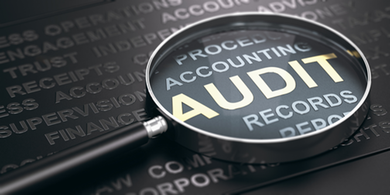In Pursuit of Profit
Read our expert article below or sign up to get articles sent to your inbox.
 The internet is buzzing right now with the high profile story of Ernst & Young (EY) being forced to pay an unprecedented $100M fine by the SEC after it was discovered that hundreds of its auditors cheated on ethics exams to obtain or maintain their CPA licenses. To say that this has rocked the accounting world would be the understatement of the century! This astronomical fine is the highest ever imposed by the SEC and likely reflects the fact that EY allegedly was aware of the cheating, which occurred over a four-year period, and covered it up instead of reporting it. In fact, the fine is twice what competitor KPMG paid in 2019 after cheating was discovered by SEC regulators. Speculation has it that the hefty fine is also meant to act as a signal to other accounting firms that the commission is not going to tolerate ethics violations, given that the auditors cheated on the ethics portions of the exams (of all things!). In the wake of this very public news, accounting firms nationwide are being met with a dubious eye from current clients and prospects, who are questioning their ethics as well. And who can blame them? What kind of accounting controls do you have in place right now?
If you are not sure, or are too embarrassed to answer, chances are you have some work to do. Internal controls protect your business from not only fraud but also the kinds of financial errors and reporting mistakes that can negatively affect cash flow management, dissuade investors, and hinder long-term business growth.  The Association of Certified Fraud Examiners’ Report to the Nations reveals that on average companies lose 5% of their annual revenue to fraud with a median loss per case of $125,000 and an average loss per case of just over $1.5M. The report further elaborates that more than half of businesses never recover any of the lost funds. While only 20% of fraud is reportedly committed by business owners (compared to 41% by individual contributors and 35% by managers), the cost of owner-run fraud schemes cost their businesses 10 times more on average than fraud cases committed by lower-level employees. The average perpetrator of fraudulent crimes has been with the company for 1-5 years and engages in their fraudulent activity for 14 months before being detected. And small businesses typically carry a higher fraud risk than their larger counterparts with twice the rate of billing fraud and payroll fraud and four times the rate of check and payment tampering. No one wants to believe that fraud could be happening at their company, but these statistics tell the true story – fraud is far more widespread than many people think. So, how does this kind of fraud occur and why is the risk of fraud higher this year than previous years? And most importantly, how do you identify fraud and what can you do to prevent it?  We see a variety of circumstances in our practice at ASP, whether it be outsourced consulting needs, or an organization growing and needing to consider a fulltime resource. Our recruiting efforts are responding to those fulltime needs daily. The pandemic has shifted the business landscape significantly, making strong financial leadership universally important. Small companies that previously had their CEO at the helm of financial operations have realized that they need a fulltime controller to oversee their accounting operations and staff. With the increased demands of operating during financially uncertain times, CEOs need to focus on their core role of running the company overall (pivoting and shifting as needed), while entrusting another professional with the financial management of the company. As a result, hiring a fulltime controller is no longer optional these days with the following business trends occurring:  Nothing sends chills down a business owner's spine, quite like being notified that you are being audited. The worry that you have accidentally overlooked something critical or done something incorrectly can be extremely nerve-wracking. Furthermore, trying to understand why you are being audited can cause business leadership to fret from the very beginning. Even before the audit has begun, the entire process can be confusing and stressful. Preparing for and weathering an audit is a lot of work for business owners that likely have too much on their plates already, especially when the audit is dragging on. Therefore, it is crucial to have an accountant (especially a CPA) or consulting CFO to lean on throughout the audit process, no matter how long it takes. But if your audit seems to be taking longer than it should, it is essential to understand what the hold up is to mitigate your future audit risk.  The IRS lays out a set of six best practices that tax professionals must abide by to protect taxpayer data, referred to as the “Security Six.” While the phrase Security Six applies specifically to tax accountants, tax preparers, and tax auditors, anyone can (and should) follow these same safeguards with sensitive data. Additionally, if you are outsourcing your financial functions to a third-party bookkeeper or accountant, they should be taking these precautions on your behalf as a component of your overall cyber security strategy. Ask yourself what kind of security measures you have in place to protect your financial information and your customers’ information. How many of these Security Six protections are you using right now?  Cost cutting is the benefit most often associated with outsourcing. Subsequently, business leaders looking to reduce expenses may jump at the opportunity to move costly functions to third-party vendors without regard to the numerous ways that outsourcing can be advantageous to other areas of the company. However, it is important to recognize that while cost savings may occur, this is not the only benefit of business outsourcing. In fact, cost cutting may not even be the biggest benefit.  The possibility of business fraud is the dirty little secret that business owners tend to ignore. Unfortunately, there will always be unscrupulous individuals that try to take what is not theirs, even during hard times. Recent reports of bookkeeper fraud serve as a reminder to business owners that fraud never stops, even when businesses are down on their luck. In fact, a global fraud study found that, on average, companies lose 5% of their yearly revenue to fraudulent activities. While it is easy to imagine fraud occurring by faceless cybercriminals or strangers sneaking in to rob your company of cash and valuable assets, most perpetrators have deep ties to the business, and many are first-time offenders. Many times, the people you least expect are the ones responsible for fraudulent activity – long-time employees, close friends, and even family. These bonds can make it difficult to spot the warning signs, causing fraud to go undetected far longer than it should.  During a recession, too many organizations try to cut costs indiscriminately. The savviest organizations, however, lean on the data to determine when to trim and when to ramp up spending to capitalize on new opportunities. A Harvard Business Review study from the 2009 recession showed that companies that strategically increased spending sooner actually weathered the downturn better. Shrewd business owners who knew when to cut and when to spend recovered lost revenue more quickly and positioned their businesses better for long-term success. Companies that do not currently employ an accountant may be hesitant to hire one during this downturn due to the expense associated with doing so. However, some circumstances call for an experienced accountant, and a recession is one of them. 6/21/2019 How to Identify Fake Financial News
|
SUBSCRIBE:DOWNLOAD:DOWNLOAD:Categories:
All
Archives:
July 2024
|
Services |
Company |
|
7/1/2022